Modern medicine is locked in a publicity war against the anti-vaccination crowd.
And for a good many reasons, war is an apt description.
Long after the battlefield dust settles, more than one military leader has later wondered if every generation has to experience war just to learn of its horrors.
It may be how the medical world wonders about this cast of players in the anti-vaccination drama unfolding in modern society—an assemblage of people, generations removed from the ugliness of conflict, clamoring for war.
In peacetime, apathy is a luxury.
“We’re sort of a product of our success, right?” said Bob Swanson, immunization division director at the Michigan Department of Health and Human Services. “We’ve been successful at eliminating these diseases, therefore they’re not real to these young mothers and fathers out there.
“They feel the risk of the vaccine is greater than risk of the disease itself,” he said, “which of course isn’t true.”
Doctors and nurses in the public and private sectors are increasingly dealing with the emergence of anti-vaccination parents, some lured by peers and some lured by Hollywood stars who have campaigned against vaccinations.
Somehow, in this Information Age, with a vast library of human knowledge at our fingertips, the premium is placed on celebrities and fancy websites.
“Yes, it’s baffling to some people,” said Kathy Maine, chief compliance officer at Spectrum Health Medical Group. “It’s baffling on both sides to people, how someone could not see their viewpoint.
“It’s one of those things where it’s sometimes challenging to be a good consumer of health care services,” Maine said. “The general public doesn’t have the same scientific training and medical training that our physicians and physician assistants and nurses and nurse practitioners have.”
The general public tends to read information and sources a little differently; they rely on what they hear and see, she said.
“And some people trust celebrities who say, ‘Oh, you should never get your kid vaccinated,’” Maine said. “They’ll trust a daytime talk show host more than they’ll trust their physician because they see the daytime talk show host several times a week.”
It also doesn’t help when the first results on Internet search engines are slick, anti-vaccination websites that draw eyeballs.
“The amount of information that’s out there is pretty amazing,” she said. “I’d say the most active sites out there are probably the anti-vaccination sites. When you’re looking for information, you get the good and the bad. It’s hard to equip all people to weigh those well.”
Suspicious, skeptical
The demographic of anti-vaccination parents runs the gamut—Swanson said there’s no standard characteristic, per se—but there is some evidence to suggest more affluent families are susceptible to sermons on the dangers of vaccinations.
Michigan Department of Health and Human Services data consistently shows the highest vaccination waiver rates, by huge margins, are in private or parochial schools.
Research has also shown that anti-vaccination parents tend to emerge in clusters, which creates unique public health risks and makes it doubly difficult to get buy-in on vaccinations once the “anti-” seed has taken root.
The clustering makes sense, said Mary Zimmerman, immunization program manager at Spectrum Health.
“I hate to say this, but it’s usually the upper-class, educated people who are refusing vaccines,” Zimmerman said. “They read something on the Internet, then they start sharing information that isn’t based on science.”
Mary Wisinski, immunization program supervisor at Kent County Health Department, has a similar thought.
“What tends to happen is non-vaccinators have a higher income, they’re white, they cluster in groups, they’re more of the naturalistic ‘I-hate-big-government’ view,” Wisinski said.
Stories about the suspected dangers of vaccines emerged about 15 years ago, with a piece that suggested vaccinations were somehow linked to autism. The study has long been refuted, but fears persist.
“I think that there are several things at play,” Swanson said. “I’m not sure I can really address the true reason, but there’s been some misinformation about vaccines—some studies that were falsely published, that sort of gave vaccines a black eye.”
So there’s been that.
And there’s this: “There’s also possibly some mistrust in the government. That could play a role,” Swanson said.
In their skepticism, anti-vaccination parents dismiss the role of immunizations in the developed world; it’s a medical advancement that has saved countless lives. A quick journey through 20th Century mortality rates can attest to this.
“Here’s what I think a large piece of it is,” Swanson said. “When I was young, I saw people who had polio, and I know that some of these vaccine-preventable diseases were prevalent. Diseases like measles, polio, and whooping cough are virtually gone now; we don’t see them.
“So, I don’t think parents now fear the disease as they used to,” he said. “They feel that the vaccine is more worrisome to them than the disease itself.”
Zimmerman agreed: “We’ve tipped the scales.”
“In the 1950s, kids were dying of all these diseases,” Zimmerman said. “Parents would line up around the block for the polio vaccine for their kids. People saw everything that was happening with these diseases, so they would do anything to get vaccines to protect their children.
“We don’t see these diseases anymore,” she said. “So now we’re starting to ask, ‘What are the risks of vaccines?’
“The fear people have is that we’re giving vaccines to healthy children,” she said, “but really, the medications and antibiotics we prescribe every day have a far longer list of side effects than any of the vaccines.”
Patience, persistence
It would seem foolhardy to stand opposite the collective wisdom of the scientific and medical communities, and yet anti-vaccinators have dug in their heels.
But their motivations shouldn’t be on trial.
“These parents are not uneducated people,” Maine said. “These are people who are capable of doing research, reading scientific articles. They’ve come to their conclusion for one reason or another.”
There’s generally little question about a parent’s motivation, Maine said—they want what is best for their children, and they believe the risks associated with vaccines are greater than the risks of vaccine-preventable diseases.
“They don’t want anything bad,” Maine said. “I honestly do believe that most of the decisions are being made with the idea that this is in the best interest of my child.”
Health professionals shouldn’t question an anti-vaccination parent’s motivation, then, even when it’s difficult to sway them once they’ve made up their mind. Headway can be gained by getting parents to listen, if only for a moment.
That’s what Michigan is attempting, having rolled out a new rule that requires parents to consult with a health department nurse before obtaining a non-medical vaccination waiver for their child.
When Spectrum Health’s physicians gain traction with anti-vaccinators, it is through listening and building trust, Maine said.
“They make their very best effort to have a continuing conversation with the parent about this, to try to keep children on a regular vaccination schedule,” Maine said. “They’re successful at it sometimes; other times they’re not.”
When they’re not? Zimmerman is blunt about the implications.
“For now, we educate everyone about the diseases and the side effects,” she said. “But what we all say in the vaccine world is there will have to be an outbreak before some people see that they should vaccinate.”
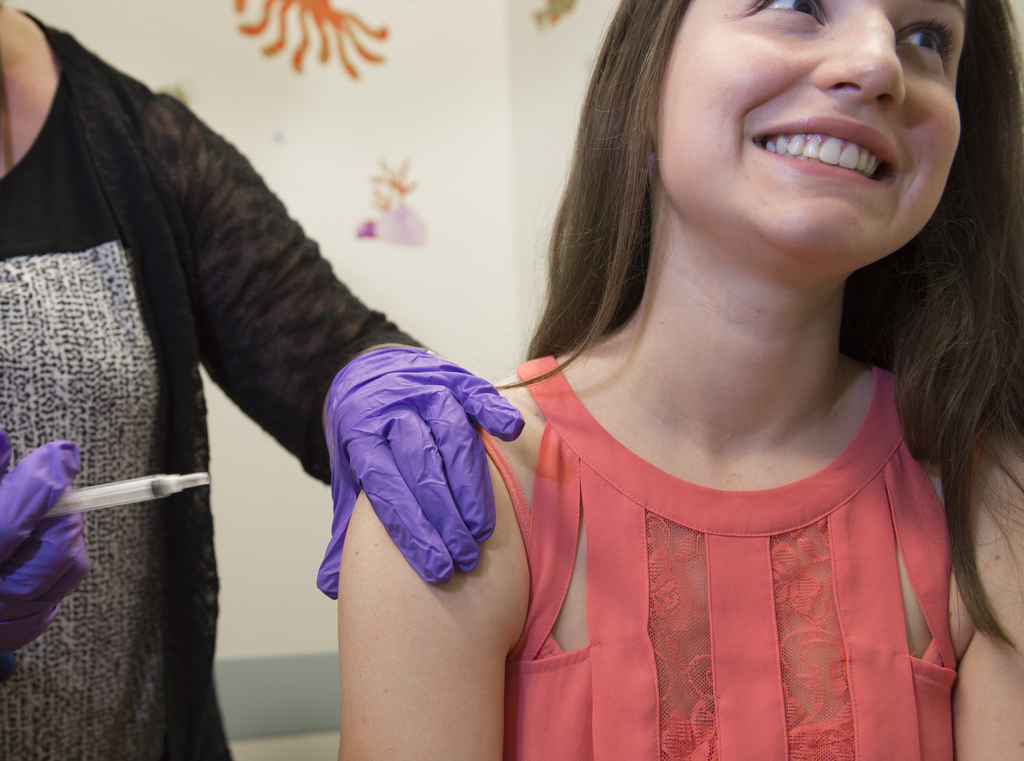

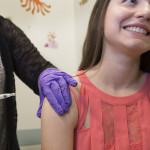
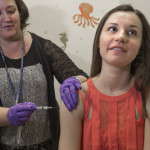
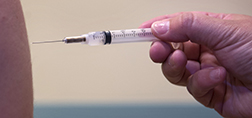 /a>
/a>
 /a>
/a>
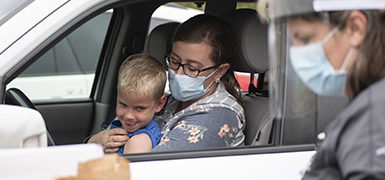 /a>
/a>